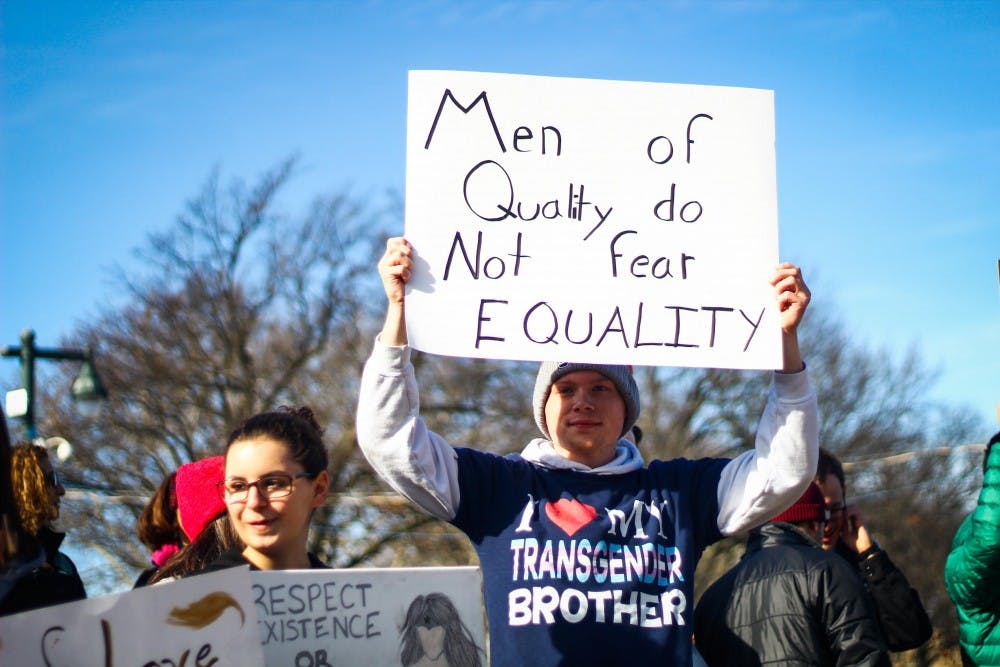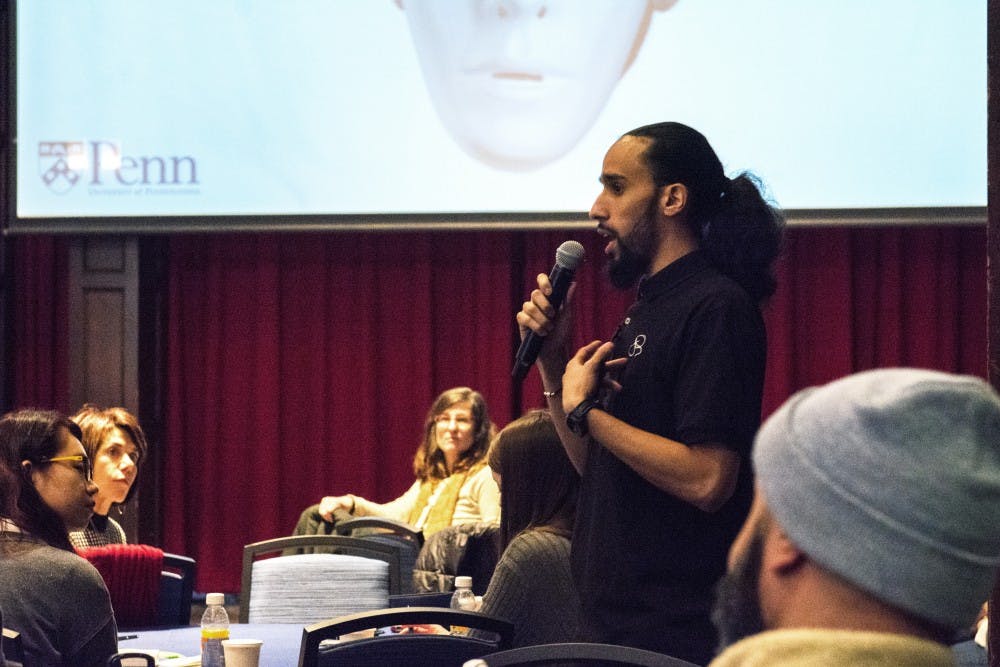
The word “masculinity” has a lot of connotations, conjuring up images of macho men, refusal to talk about feelings, and overall, the toxic perpetuation of gender norms and attitudes. However, in the midst of recent events inside and outside of Penn, from Wynn Commons to Aziz Ansari, we need to do more to unpack what this means and hear from one side of the conversation that is oddly silent — men.
Two weeks ago, Penn held its first Men & Masculinities Summit on Feb. 3, where students and administrators came together to discuss men’s gender identity and the toxic effects of masculinity, as well as intersectional aspects such as race and mental health. During this summit, some much-needed conversations arose about what it means to be a “man.”
College junior Yuan Zou, one of the student organizers of the summit, recounted some key takeaways from his experience. “It’s important to realize that men can have vulnerability,” he said. “Men don’t have to conform to all those preconceptions [of masculinity].”

Photo of Josué “JQ” Quiñones from Mowa Li
Another participant, College junior Luke Kertcher, said he enjoyed the workshops in general. “There were really candid conversations and discussions on how masculinity and gender roles impact the way we talk about and approach sex and sexuality.”
Our conversations about sexual assault prevention require women to speak up about their own experiences — acknowledging and giving power to women’s stories shine light on issues we’ve previously ignored and need to recognize. However, the conversation requires communication from both sides — men and women — and active participation from both ends, too.
Historically, the idea of “masculinity” alienates men from actively talking about their thoughts and feelings, and prevents men from connecting to their vulnerability. “Toxic” masculinity encourages men to take without asking, act without thinking, stay silent when discourse is required — all under the guise of “being a man.”
Indeed, while women have often taken the initiative to discuss matters of sexual assault and violence, the absence of men in these spaces speaks louder than words. The problems that we have on college campuses, and specifically at Penn, with sexual violence are on all of us, and no one can be absent from that conversation, especially men.
This stigma against men partaking in active dialogue ultimately festers a harmful campus environment, one that silences much-needed voices that can help us in figuring out how to best combat this problem. When miscommunication leads to both parties confused and hurt, one cannot stay silent — there needs to be honest discussion and a willingness to genuinely listen and learn something from each other.
At Penn, we recognize there is a problem. However, there are still so many steps we need to take to continue to understand and combat sexual violence, and we must start by breaking down the barriers that prevent us from speaking honestly with each other. Acknowledging the construct of masculinity and breaking this construct down, encouraging men to be honest and vulnerable about what they feel and what they do not know, are some of the first steps we need to take.
Constant reminders on campus show us that the problem of sexual and relationship violence, from microaggressions to assault, continues to exist and haunt us. The blocking out of Wynn Commons, 34th Street Magazine’s heart-wrenching sexual assault narratives, national headlines, and court cases — all of these events signal an urgent need for continued conversation, dialogue, and understanding between both sides of the story.

JESSICA LI is a College sophomore from Livingston, N.J., studying English and psychology. Her email address is jesli@sas.upenn.edu.
The Daily Pennsylvanian is an independent, student-run newspaper. Please consider making a donation to support the coverage that shapes the University. Your generosity ensures a future of strong journalism at Penn.
Donate







